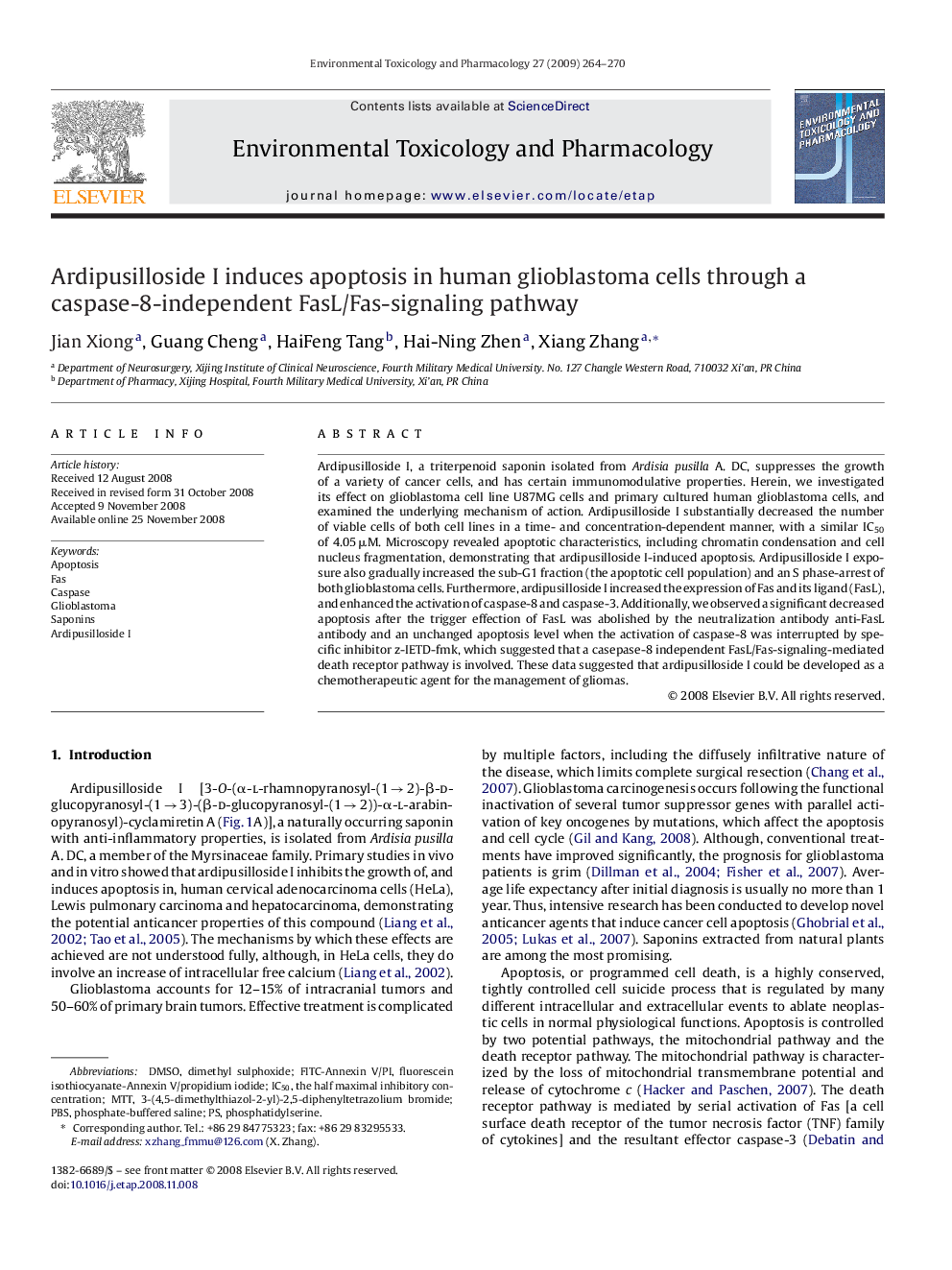| Article ID | Journal | Published Year | Pages | File Type |
|---|---|---|---|---|
| 2583956 | Environmental Toxicology and Pharmacology | 2009 | 7 Pages |
Ardipusilloside I, a triterpenoid saponin isolated from Ardisia pusilla A. DC, suppresses the growth of a variety of cancer cells, and has certain immunomodulative properties. Herein, we investigated its effect on glioblastoma cell line U87MG cells and primary cultured human glioblastoma cells, and examined the underlying mechanism of action. Ardipusilloside I substantially decreased the number of viable cells of both cell lines in a time- and concentration-dependent manner, with a similar IC50 of 4.05 μM. Microscopy revealed apoptotic characteristics, including chromatin condensation and cell nucleus fragmentation, demonstrating that ardipusilloside I-induced apoptosis. Ardipusilloside I exposure also gradually increased the sub-G1 fraction (the apoptotic cell population) and an S phase-arrest of both glioblastoma cells. Furthermore, ardipusilloside I increased the expression of Fas and its ligand (FasL), and enhanced the activation of caspase-8 and caspase-3. Additionally, we observed a significant decreased apoptosis after the trigger effection of FasL was abolished by the neutralization antibody anti-FasL antibody and an unchanged apoptosis level when the activation of caspase-8 was interrupted by specific inhibitor z-IETD-fmk, which suggested that a casepase-8 independent FasL/Fas-signaling-mediated death receptor pathway is involved. These data suggested that ardipusilloside I could be developed as a chemotherapeutic agent for the management of gliomas.
